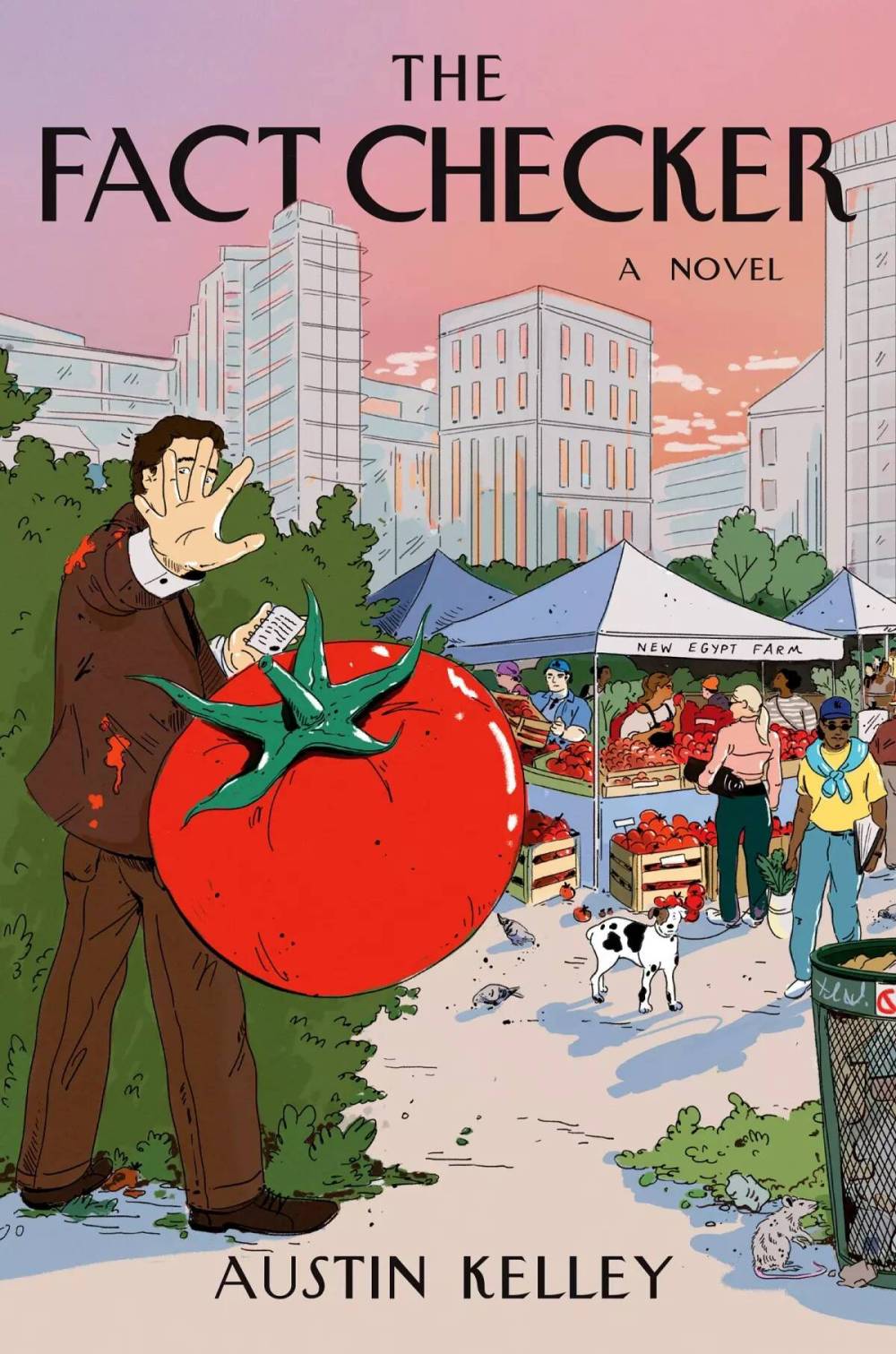Just the facts
Ex-fact checker’s foray into fiction an insightful, enjoyable debut
Advertisement
Read this article for free:
or
Already have an account? Log in here »
To continue reading, please subscribe:
Monthly Digital Subscription
$0 for the first 4 weeks*
- Enjoy unlimited reading on winnipegfreepress.com
- Read the E-Edition, our digital replica newspaper
- Access News Break, our award-winning app
- Play interactive puzzles
*No charge for 4 weeks then price increases to the regular rate of $19.00 plus GST every four weeks. Offer available to new and qualified returning subscribers only. Cancel any time.
Monthly Digital Subscription
$4.75/week*
- Enjoy unlimited reading on winnipegfreepress.com
- Read the E-Edition, our digital replica newspaper
- Access News Break, our award-winning app
- Play interactive puzzles
*Billed as $19 plus GST every four weeks. Cancel any time.
To continue reading, please subscribe:
Add Free Press access to your Brandon Sun subscription for only an additional
$1 for the first 4 weeks*
*Your next subscription payment will increase by $1.00 and you will be charged $16.99 plus GST for four weeks. After four weeks, your payment will increase to $23.99 plus GST every four weeks.
Read unlimited articles for free today:
or
Already have an account? Log in here »
Hey there, time traveller!
This article was published 03/05/2025 (200 days ago), so information in it may no longer be current.
They say to write what you know, so it’s not surprising that Austin Kelley, the author of The Fact Checker, used to work at the New Yorker as, yes, a fact checker.
What is surprising, perhaps, is how enjoyable his debut novel is, despite its dry-sounding title and somewhat loosey-goosey premise.
Those joys are, it must be said, sporadic, and the plot peters out prematurely, but Kelley’s voice is unique and the world of this quasi-mystery novel feels portentous and poignant.

Jennifer Miller photo
The world of Austin Kelley’s quasi-mystery novel feels portentious and poignant, with his unique voice bringing sporadic joy.
The Fact Checker (he is never named) works at a prestigious magazine (also unnamed) where he spends his days clarifying, refining and correcting the work submitted by the mag’s writers on topics as diverse as CIA agents killed by IEDs and a profile of actor Tony Curtis (the action is set in 2004).
He’s newly single, probably drinks too much and doesn’t seem to have many friends.
“Maybe it was my central problem, an inability to commit, totally and fully, to anything without picking it apart, without doubting it,” he says.
He’s currently working on an innocuous-sounding piece by a writer named John Mandeville about an organic farm, New Egypt, whose Ramapo tomatoes have become the produce of the moment at Manhattan’s Union Square Greenmarket.
Although the article is uncontroversial, the careless Mandeville doesn’t make checking it easy, especially when he includes a quote about “nefarious business” at the market with no followup or details.
“I had worked with Mandeville many times. He was not a liar, but he often left out large swaths of the truth in order to give his story a more surreal and dramatic quality,” the Fact Checker notes. (Despite his protagonist’s alleged adherence to accuracy, Kelley’s story also has this quality; part of the book’s appeal is the way it toys with reality despite being stuffed with truths.)
The Fact Checker’s attempts to get to the bottom of the partial quote lead him to meet a tomato seller, Sylvia, with a scar on her face and a curious mien. When she disappears after they spend the night together, he starts to investigate beyond the purview of his job.
If the mystery never feels like much of a mystery — Sylvia seems like the kind of person who would think nothing of just wandering off on a new adventure — the Fact Checker’s investigations allow for an exploration of New York, from dive bars and secret supper clubs to the Irish Hunger Memorial and an anarchist barge, and finally New Egypt, home of the fabled tomato and possibly some unsavoury secrets.
There also is quite a bit of background about fact-checking; it might be the copy editor in this reviewer speaking, but it’s fascinating to get a perspective on the kind of brain one needs to note things in a story that need confirmation, statements and observations that seem entirely innocuous, mere colour or embellishment, but red flags to the checker.

The Fact Checker
There are corrections that would be second nature for a seasoned copy editor (eg. the film Sweet Smell of Success does not have a “The” in the title), but others are more nebulous — assertions and descriptions and subjective statements.
“I had to check these things even if they appeared in a quote and were thus understood to be ‘according to Tony Curtis’… Whether we were praising someone or casting aspersions, we needed corroboration.”
Kelley has an economical, unadorned style, but The Fact Checker is frequently very funny. In one chapter, the protagonist’s pedantic co-worker Mr. Lancaster, “a frail old ghost of a man,” is on the phone, fact-checking a piece on hip-hop artist 50 Cent to clarify the spelling of particular profanity involving sex and a maternal figure, which does not end in the expected hard R: “He pronounced the end ‘aah’ like a child is supposed to when a doctor is looking down his throat.”
It’s an amusing anecdote but also illustrates the issue at the heart of The Fact Checker: sometimes the real truth of a story can’t be summed up in the facts.
Jill Wilson is the Free Press Arts & Life editor and a once and always pedantic copy editor.

Jill Wilson is the editor of the Arts & Life section. A born and bred Winnipegger, she graduated from the University of Winnipeg and worked at Stylus magazine, the Winnipeg Sun and Uptown before joining the Free Press in 2003. Read more about Jill.
Jill oversees the team that publishes news and analysis about art, entertainment and culture in Manitoba. It’s part of the Free Press‘s tradition, since 1872, of producing reliable independent journalism. Read more about Free Press’s history and mandate, and learn how our newsroom operates.
Our newsroom depends on a growing audience of readers to power our journalism. If you are not a paid reader, please consider becoming a subscriber.
Our newsroom depends on its audience of readers to power our journalism. Thank you for your support.


